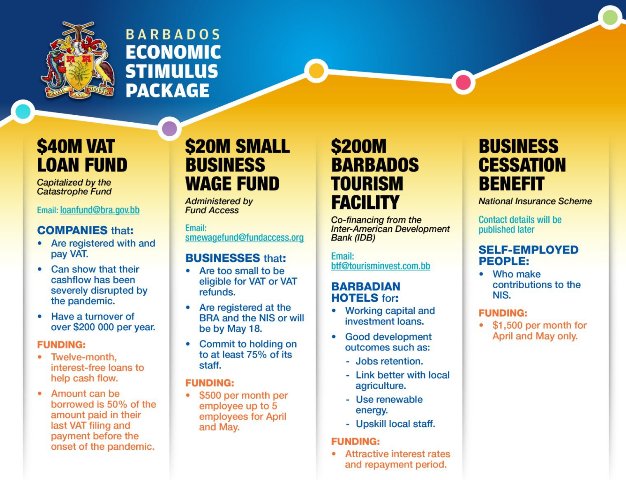 [photo: Government of Barbados]
[photo: Government of Barbados]
[This is an excerpt from an opinion piece appearing in The Round Table: The Commonwealth Journal of International Affairs.]
Although Barbados has a publicly funded healthcare system regarded as one of the best in the Caribbean, the island also has many people with chronic non-communicable diseases (CNCDs) and an ageing population – two groups most vulnerable to Covid-19. Indeed, all five reported deaths in Barbados at the time of writing have been of persons over the age of 50, some with co-morbidities.
From the start of the crisis globally, the GOB has promoted transparency and held regular Covid-19 press briefings. It also drafted a three-stage Covid-19 National Preparedness Plan appointed a ‘Covid-19 czar’. Public service announcements encouraging proper respiratory hygiene and social distancing have become a staple in the local media.
To date, Barbados has not fully closed its borders. Mandatory quarantining of passengers arriving from the UK, continental Europe and the US was not announced until 19 March. Since then, enhanced screening measures and a mandatory 14-day quarantine have been in place at all ports of entry.
On 26 March the GOB declared a public health emergency and put the country under the third (highest) stage of the Covid-19 National Preparedness Plan. A nightly curfew was imposed from 28 March to 14 April but this was subsequently extended to run for 24 h from 4 April.
During this period, all businesses, except for those classified as ‘essential’, are required to be closed. Special electronic passes are being issued to those with legitimate reasons to be outside of their homes during the curfew. The penalty for contravention ‘without a reasonable explanation’ is a fine of BB$50,000 (US$25,000), 1 year in prison or both.
A major concern is that Covid-19 could derail Barbados’ fragile economic recovery, especially at a time when the government lacks sufficient fiscal space to cushion the blow. As such, the GOB approached the IMF for permission to reduce its fiscal targets. The Prime Minister also announced a 20 USD million ($US 10 million) stimulus package. The Central Bank of Barbados has instituted measures to support commercial banks and other deposit-taking institutions’ efforts to stem the fall-out. Commercial banks have agreed to a six-month debt moratorium for individuals and businesses negatively impacted by Covid-19.
The GOB has engaged the private sector, charities and volunteers to assist with newly-created Household Survival and Adopt Family programmes aimed at assisting vulnerable families. It has also decided not to deport any non-nationals living illegally on the island who are seeking treatment for Covid-19.
Barbados maintains a stockpile of pharmaceutical products, and its Customs department has focused on clearing essential goods. There are no export restrictions or import tax reductions on personal protective equipment (PPE) or medical supplies. But Barbados has been impacted by export restriction policies of the US: a shipment of 20 ventilators donated to Barbados by a philanthropist was reportedly seized by US authorities.
Like most other countries, Barbados has never confronted a crisis of this magnitude before and some degree of ‘trial and error’ is expected. The GOB should, however, be commended for its transparent and proactive approach and for following World Health Organisation advice and emerging global best practice norms, while also continuously tweaking policy measures as deemed necessary based on results and public feedback.
Alicia D. Nicholls is a Trade Researcher at the Shridath Ramphal Centre, The University of the West Indies, Cave Hill.
COVID-19 related articles:
Local government fighting COVID-19
Singapore and Covid-19: In the forefront of response efforts?
Coronavirus and Malta: weathering the storm
Electoral Politics As Usual in Vanuatu Despite Cyclone and Volcano



